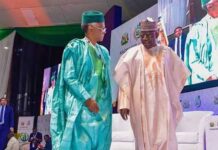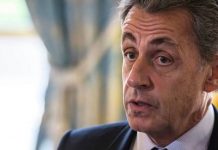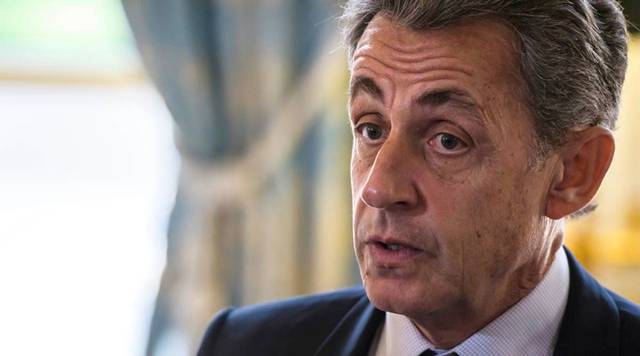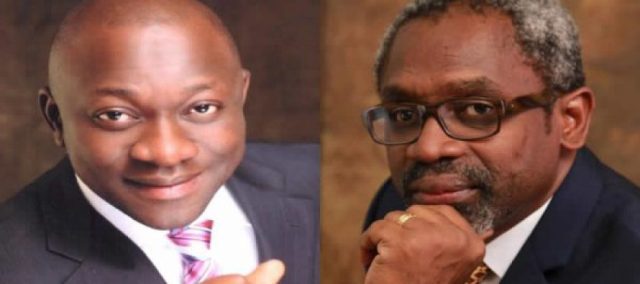A Paris court will rule Thursday whether former French president Nicolas Sarkozy accepted illegal campaign financing from late Libyan dictator Moamer Kadhafi, just two days after his key accuser died in Beirut.
The verdict represents another critical juncture for Sarkozy, who denies the charges. The 70-year-old, who was president from 2007-2012, has already been convicted in two separate cases and stripped of France’s highest honour.
Prosecutors argued that the former conservative leader and his aides devised a pact with Kadhafi in 2005 to illegally fund Sarkozy’s victorious presidential election bid two years later.
They have demanded a seven-year jail term, although even if convicted, Sarkozy is likely to appeal, and it is doubtful that he would be sent to prison immediately.
In a dramatic coincidence, Franco-Lebanese businessman Ziad Takieddine, a key accuser of Sarkozy in the case, died in Beirut on Tuesday, aged 75, his French lawyer Elise Arfi told AFP.
Takieddine had claimed several times that he helped deliver up to five million euros ($6 million) in cash from Kadhafi to Sarkozy and the former president’s chief of staff in 2006 and 2007.
Sarkozy is expected to be present for the verdict and has called the sentencing demands “excessive”, maintaining throughout the trial that he never accepted any money from Kadhafi.
“You will never find a single euro, a single Libyan cent, in my campaign,” he said in January.
Fight to the end
Prosecutors allege that Sarkozy and senior figures entered a “corruption pact” to help Kadhafi rehabilitate his international image in return for campaign financing.
Tripoli had been blamed by the West for bombing Pan Am Flight 103 in 1988 over Lockerbie, Scotland, and UTA Flight 772 over Niger in 1989, killing hundreds of passengers.
Eleven others were charged alongside Sarkozy, including his former right-hand man, Claude Gueant, his then-head of campaign financing, Eric Woerth, and former minister Brice Hortefeux, all of whom deny the charges.
The prosecution’s case is based on statements from seven former Libyan dignitaries, trips to Libya by Gueant and Hortefeux, financial transfers, and the notebooks of the former Libyan oil minister Shukri Ghanem, who was found drowned in the Danube River in 2012.
The former president insists he is innocent, telling French daily Le Figaro in September he felt “calm” ahead of the verdict.
“It will take as long as it takes, but I will fight to the end to prove my innocence,” he said.
Top honour stripped
Sarkozy has faced a litany of legal problems since his mandate and has been charged separately with corruption, bribery, influence-peddling, and campaign finance infringements.
He was first convicted for graft and sentenced to a one-year jail term, which he served with an electronic tag for three months before being granted conditional release.
The only other French leader to be convicted in a criminal trial is Jacques Chirac, who received a two-year suspended sentence in 2011 for corruption over a fake jobs scandal.
But Sarkozy is France’s first post-war president to be sentenced to serve time — a conviction he is appealing at the European Court of Human Rights.
Separately, he received a one-year jail term in the “Bygmalion affair” for illegal campaign financing.
An appeals court in 2024 confirmed the conviction but lightened his sentence to six months with another six months suspended.
He has appealed that ruling, with a hearing scheduled on October 8.
Sarkozy has faced repercussions beyond the courtroom, including losing his Legion of Honour — France’s highest distinction — following the graft conviction.
In 2020, Takieddine suddenly retracted his incriminating statement in the Libya case, prompting accusations that Sarkozy and close allies paid the witness to change his mind, something they have always denied.
Both Sarkozy and his wife, the singer and model Carla Bruni-Sarkozy, have been charged on suspicion of putting pressure on a witness over these allegations in what is now a new legal case.
Legal woes aside, the man who styled himself as the “hyper-president” while in office still enjoys considerable influence and popularity on the right of French politics, and is known to regularly meet with President Emmanuel Macron.
AFP























































